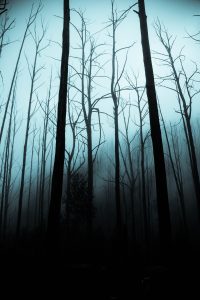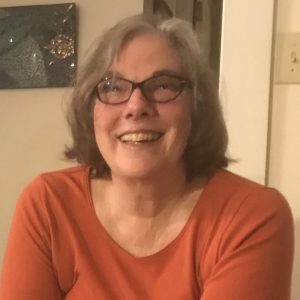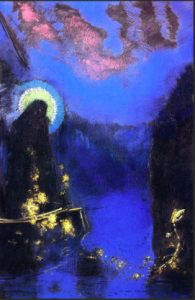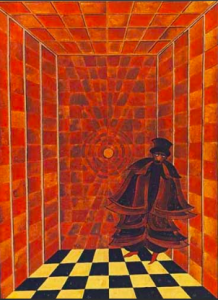“In the midst of life’s journey,
I found myself in a dark wood,
for the right path was lost.” ~Dante
In the Dark Wood
an Anthroposophical Retreat
for people 37 yrs old or younger to enter into
the mysteries of modern initiation
and find their right path.
4PM Friday, December 13, 2019 to
2PM Sunday, December 15, 2019
Twelve young anthroposophists will gather for 2 1/2 days to recollect, reveal and resolve their personal experiences in the dark wood of modern initiation. Modern initiation often takes place in the trauma, loneliness and suffering of our formative (conception through 21) and early adult years. It is essential preparation for your destiny. Often we suffer with feeling ashamed, afraid, crazy, damaged, rejected or lost. We long to find our way to the calm center of consciousness.
The right path is not easy to find nor easy to travel. Rudolf Steiner tells us “Whenever an individual sees evil s/he should look into her/his own soul ask, “Why am I not yet able to recognize the good in this evil that confronts me?”
The right path meanders through the dark wood of our souls. The right path is a conscious relationship to the messy, isolating, and terrifying personal experience of modern initiation. In psychological perspectives, these initiations are considered traumas, emotional imbalances, behavioral issues, tragedies and oddly, huge talents. Without a spiritual understanding, walking and dwelling in the dark wood feels overwhelming, disorienting, crazy, dangerous, and full of nightmares.
The Madness of Modern Initiations
Ancient initiations began to lose their purity and their force about 4000 years ago. Many initiations were failed, incomplete or corrupt. Failed initiations occurred when the neophyte was not ready for the experience, either too incarnated or not incarnated enough. Incomplete initiations happened when one or more of the “helpers” lost focus or control. A corrupt initiation was the result of the hierophant’s dark egotism and greedy personality. Your difficult path was formed in previous lifetimes and earlier initiations as in each lifetime, before we can move into the destiny of this lifetime, we must re-experience the initiations of previous lifetimes. The repetition takes place in the formative years and early adulthood and appears as drama, difficulties and traumas.
Our guardian angels do not guard our innocence, they guard our destiny to evolve, to contribute something new, to form creative relationships and to stand with moral courage in challenging times. Once we grasp the cosmic gestures behind our difficult stories, we can move through the dark wood with purpose.
Modern initiations are not guided by a hierophant or guru. They do not take place in a sacred temple under strict rules. Each initiation is unique and solitary taking place in what seems like ordinary life, actually in a non-extraordinary time and place. Modern initiation divides our lives and our souls into conflicting parts with polarizing stories leaving us with no organized, integrated sense of self unfolding in a cohesive and coherent narrative within a tribe of shared experiences. Yet, if we courageously gather together with this understanding, we can connect to each other and to the spiritual world in ways that enkindle an inner flame, resonate with a cosmic purpose, and provide personal meaning.
In this retreat, together we will follow Lord Byron’s guide ‘To slowly trace the forest’s shady scene.” We will seek the wisdom of Nietzsche “No one can build you the bridge on which you, and only you, must cross the river of life, the true and durable path into and through experience,”
Together we will enter into our own inner spaces and boldly go where only we can go, alone, We will find the experience of solitude surrounded by other souls capable of compassionately resonating with our process.
We will witness for each other.
What Lynn brings to the gathering…
Back in 1989, thirty years ago, I went to my first conference in Spring Valley. I took the biography workshop. In the brief two hours of the workshop, I was hoping to find some understanding of my childhood. When the workshop ended, I waited patiently and anxiously to speak with the workshop leader after everyone had left. I spoke my question with courage. “I was incested as a child. How can I meet this anthroposophically?” She looked at me flatly and said she wouldn’t speak to my question and that she was sorry.
That was a powerful moment for me. Devastating at the time but a great opening to my destiny as a spiritual mentor and friend. I have never said to anyone that I will not speak to their question. This is a spiritual and moral practice of humble and compassionate openness and allows for the awakening of imaginations, inspirations and intuitions in response to the painful, traumatic mysteries of biography.
Nothing my clients or workshop participants want to share and speak about is beyond a compassionate conversation. I don’t care how dramatic or dark or despairing, I will be present, ask questions, explore karmic indications and consider destiny purpose. These are the thresholds of spiritual initiations in our times. I will stand beside anyone facing temptations and trials of soul.
I am radical and reverent in my relationship to anthroposophy and Rudolf Steiner. Radical in that I am capable of disagreeing with Steiner and going beyond his great wisdom as there is always more. Reverent in that what Steiner gave the world needs to be applied, practiced and evolved. I also have a solid working knowledge of trauma recovery and neuroscience. You can learn more about me here.
The Design of Our Time
This weekend retreat has an open design…except for Friday evening there is no preplanned schedule of topics or activities. Our conversations will unfold through the questions that show up over our time together. After thirty years of anthroposophical mentoring and workshop facilitation, I have a vast number of archetypal structures and amazing exercises that I can use to meet the needs of the moment. We will be on a spiritual and moral adventure and we can trust the presence and guidance of higher beings.
The weekend does have a number of intentions:
- To apply anthroposophical wisdom and compassion to the inner suffering of each of us.
- To see our lives beyond narrative consciousness…yet feel deep reverence for our stories.
- To grasp the impact of our biological imbalances on our attempts to establish equanimity.
- To distinguish the physical, the etheric, the astral, and the I and how we experience our sense of self in each body.
- To offer soul comfort to each other without falling into a victim/perpetrator consciousness.
- To weep with each other and laugh with the gods.
LOGISTICS
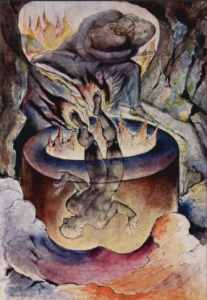
DATES
Friday, December 13, 2019 – 4PMto
Sunday, December 15, 2019 – 2PM
Enrollment ends December 1
LOCATION
Lynn’s Living Room
Chapel Hill, NC
COST
Sliding Scale
$300-$150
Limited scholarship available
including Dinner Friday
Lunch and Snacks on Sat & Sun
Travel and Lodging not included.
CONTACT LYNN TO REGISTER OR ASK QUESTIONS:
919-636-0430 or [email protected]
Some wisdom to inspire our retreat…
Here are a few wise words and poems
to guide us in our conversations:
Dori Laub, MD, a specialist in the traumas of the Holocaust offers in the following two quotes what I believe is best understood through the grasp of anthroposophy and the evolution of consciousness in the individual.
“The absence of an empathetic listener, or more radically, the absence of an addressable other, an other who can hear the anguish of one’s memories and thus affirm and recognize their realness, annihilates the story”
“The traumatic event, although real, took place outside the parameters of “normal” reality, such as causality, sequence, place, and time. The trauma is thus an event that has no beginning, no ending, no before, no during and no after. This absence of categories that define it lends it to a quality of “otherness”, a salience, a timelessness and a ubiquity that puts it outside the range of associatively linked experiences, outside the range of comprehension, of recounting and of mastery. Trauma survivors live not with memories of the past, but with an event that could not and did not proceed through to its completion, has no ending, attained no closure, and therefore, as far as its survivors are concerned, continues into the present and is current in every respect.”
Kate McQuade wrote an essay on “Seven Titles from a High School Class on Trauma Literature.” Her picture of blank pages is indicative of an aspect of modern initiation. I quote her here to add another picture best understood as an opening to the higher cognitions of imagination, inspiration and intuition. When we can see evil in our own souls and not run from ourselves we develop the capacity to see the writing on our blank pages and the world’s blank pages.
The problematics of trauma narratives are also, I suspect, why almost every book I’ve taught features at least one character suffering from writer’s block. Blank pages, both literal and metaphorical, are inescapable motifs in this genre; characters routinely fail to write the texts they need to make sense of things.
Despite the wide range of geographies, time periods, and cultures that my syllabus covers, the books I teach often funnel down to the same thematic point: Sometimes we can’t put the whole story down on the page. Sometimes closure is a lie; sometimes the mysteries we want answered don’t get answered in the end. That blankness is true not just to traumatic experience, something the brain often fails to fully register, but also to the gap-filled historical narratives that trauma authors reexamine, and that I want my students to learn how to interrogate.
https://lithub.com/what-i-teach-seven-titles-from-a-high-school-class-on-trauma-literature/
won’t you celebrate with me
by Lucille Clifton
won’t you celebrate with me
what i have shaped into
a kind of life? i had no model.
born in babylon
both nonwhite and woman
what did i see to be except myself?
i made it up
here on this bridge between
starshine and clay,
my one hand holding tight
my other hand; come celebrate
with me that every day
something has tried to kill me
and has failed.
Solitude by Lord Byron
To sit on rocks, to muse o’er flood and fell,
To slowly trace the forest’s shady scene,
Where things that own not man’s dominion dwell,
And mortal foot hath ne’er or rarely been;
To climb the trackless mountain all unseen,
With the wild flock that never needs a fold;
Alone o’er steeps and foaming falls to lean;
This is not solitude, ’tis but to hold
Converse with Nature’s charms, and view her stores unrolled.
But midst the crowd, the hurry, the shock of men,
To hear, to see, to feel and to possess,
And roam alone, the world’s tired denizen,
With none who bless us, none whom we can bless;
Minions of splendour shrinking from distress!
None that, with kindred consciousness endued,
If we were not, would seem to smile the less
Of all the flattered, followed, sought and sued;
This is to be alone; this, this is solitude!
NORTHUMBRIAN SEQUENCE IV
by Kathleen Raine
Let in the wind,
Let in the rain,
Let in the moors tonight,
The storm beats on my window-pane,
Night stands at my bed-foot,
Let in the fear,
Let in the pain,
Let in the trees that toss and groan,
Let in the north tonight.
Let in the nameless formless power
That beats upon my door,
Let in the ice, let in the snow,
The banshee howling on the moor,
The bracken-bush on the bleak hillside,
Let in the dead tonight.
The whistling ghost behind the dyke,
The dead that rot in the mire,
Let in the thronging ancestors,
The unfilled desire,
Let in the wraith of the dead earl,
Let in the dead tonight.
Let in the cold,
Let in the wet,
Let in the loneliness,
Let in the quick,
Let in the dead,
Let in the unpeopled skies.
Oh how can virgin fingers weave
A covering for the void,
How can my fearful heart conceive
Gigantic solitude?
How can a house so small contain
A company so great?
Let in the dark,
Let in the dead,
Let in your love tonight.
Let in the snow that numbs the grave,
Let in the acorn-tree,
The mountain stream and mountain stone,
Let in the bitter sea.
Fearful is my virgin heart
And frail my virgin form,
And must I then take pity on
The raging of the storm
That rose up from the great abyss
Before the earth was made,
That pours the stars in cataracts
And shakes this violent world?
Let in the fire,
Let in the power,
Let in the invading might.
Gentle must my fingers be
And pitiful my heart
Since I must bind in human form
A living power so great,
A living impulse great and wild
That cries about my house
With all the violence of desire
Desiring this my peace.
Pitiful my heart must hold
The lonely stars at rest,
Have pity on the raven’s cry,
The torrent and the eagle’s wing,
The icy water of the tarn
And on the biting blast.
Let in the wound,
Let in the pain,
Let in your child tonight.

